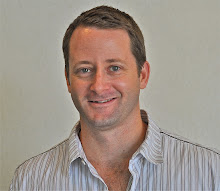If we must jump the gun (we must! we must!), or What Braves & Birds said
In accordance with this country's due process tradition, the accused are innocent until proven guilty (except when residing in Guantanamo, but I digress …). Still it's hard to attach the "innocent until proven guilty" phrase to sentences involving O.J. Simpson and now Mike Vick without making those silly quote signs with your fingers or using some other annoying disclaimer like "theoretically," "technically," or "quote-unquote." Because there's Guilty in a Court of Law and then there's "C'mon, even his mother knows he did it." Given the specificity of the feds' 18-page indictment and the fact that one of Vick's alleged co-conspirators literally told the feds where the bodies were buried, Vick appears to have fallen so squarely in the latter category as to render the former almost a formality.
Among the many things that can be said about the feds is that, when they get around to indicting the rich, powerful and heavily lawyered, the feds usually come correct. A recurring statistic in this Vick story is the feds' 95% conviction rate. That 5% is an exclusive club that rejected the likes of Martha Stewart, Jeff Skilling, Lord Conrad Black and many others. For that and many other reasons, it ought to be shitting-bricks time for Michael Vick, Purnell Peace, Quanis L. Phillips and Tony Taylor.
That brings us to the mealy-mouthed attempts at excuses coming from various quarters – such as the fact that the victims weren't humans (neither were Jeffrey Dahmer's first victims), that Vick is from a historically disenfranchised socio-economic stratum that views dog fighting more sympathetically, and more equivocations that, at their most cogent, merely serve to insult even the slightest of intellects.
As an ex-pat Georgian forced to view my birthplace through a national lens, I was nervous about how Atlanta would come out looking in this. Like many major metro areas in the South, Atlanta is a rapidly growing, majority-minority city in a largely rural state and, accordingly, reflects all of the contradictions implied by such a setting. Yet Atlanta's Jim Crow legacy is considerably less burdensome than that of its neighbors, a point upon which Michael at Braves & Birds does a superb job expanding upon here and which ESPN utterly ignores here. As televisions exploded with images of church burnings, fire hoses, police dogs and race riots in places like Birmingham, Memphis and Little Rock, Atlanta was busy dubbing itself "The City Too Busy To Hate."
White Southerners are more than a little prickly when it comes to the topic of race in the South, principally because racism didn't begin in the South and, given recent events as recent as those in Idaho, it isn't likely to end there. And yet, to be in such a reputed hotbed of racial hostility, the South's economic nexus, Atlanta, has shown itself to be remarkably inclusive. As Michael notes: "Atlanta's mayors have been African-American since 1974. The district attorney in Atlanta is African-American, as is the chief of police. These seem like fairly relevant facts to me in describing the question of race in Atlanta."
When the Southern Christian Leadership Council initially jumped to the defense of Vick, saying that it would "honor" Vick at its national convention, it was a surreal moment. Had, as Jim Wooten wondered on the Atlanta Journal-Constitution's editorial pages, Black America progressed so much since Jim Crow that the biggest problem facing African Americans in 2007 was that a federal dog fighting indictment had been served on a multi-millionaire athlete? Surely not, as State Rep. Tyrone Brooks (D-Atlanta) counseled SCLC President Charles Steele:
"What has he ever done except throw a football, run a football?" Brooks told the AJ-C. "I don't think he has done anything to deserve any special recognition."
There's a refreshing sobriety in Brooks' comment. Maybe, just this once, we can deviate from the standard reflex of foisting the standard storyline of the Plight of Blacks in the South on anything involving blacks and crime. This is, first and foremost (and, I'd argue, exclusively), a story about a multi-millionaire athlete possibly doing something that's a felony in 48 states and at the federal level. As Brooks observed, Vick never carried the flag for the SCLC, so why should the SCLC carry water for Vick? Michael at Braves & Birds is even more direct: "there is a subtle paternalistic prejudice in arguing that African-Americans shouldn't be expected to view the charges against Vick in an analytical manner."
When blacks celebrated O.J. Simpson's "not guilty" verdict, comedian Chris Rock asked with characteristic exasperation, "Why? What did we get?" Similarly, if Vick is exonerated, it won't be a victory for Black America, it'll be yet another victory for the rich, famous and well-lawyered.








